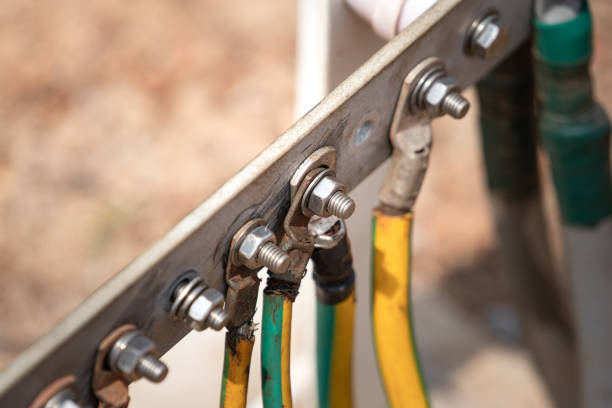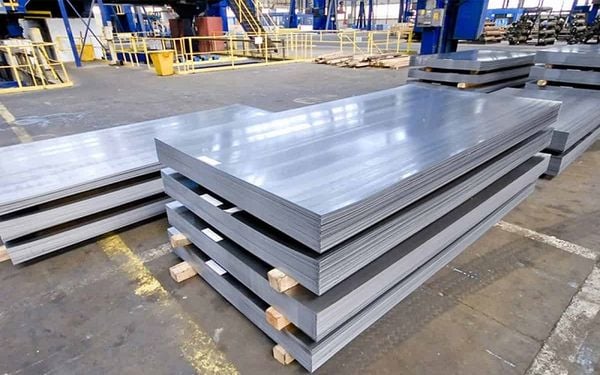PVC Crash Doors are a versatile, essential solution offering durability and cost-effectiveness for high-traffic industrial and commercial environments. These doors enhance energy efficiency, reduce noise, and maintain hygiene standards, making them ideal for diverse settings such as warehouses, food processing facilities, supermarkets, healthcare establishments, and more. Additionally, they offer customizable options to meet specific industry needs.
Flexible PVC Crash Doors Uses
Flexible PVC crash doors are widely used across various industries and settings and manufactured by industrial door suppliers such as Arrow Industrial in the UK.
Here’s an overview of their primary applications:
- Warehouses and Distribution Centers: These doors separate different zones while allowing easy movement of personnel and equipment. Their durability makes them ideal for loading bays and busy corridors, as they withstand frequent impacts from forklifts and other vehicles.
- Food Processing Facilities: Due to their hygienic properties, PVC crash doors are suitable for food handling environments. They are easy to clean and can be manufactured with antimicrobial properties to maintain hygiene standards.
- Supermarkets and Retail Stores: Often used between storage areas and sales floors, these doors allow quick and easy passage of staff and goods, keeping stockrooms and customer areas separate.
- Industrial Workshops and Manufacturing Plants: PVC crash doors act as barriers for noise reduction and temperature control, creating separate work zones while allowing access between areas.
- Cold Storage Areas: With insulating properties, these doors help maintain temperature differences between spaces, improving energy efficiency in refrigerated environments.
- Healthcare Facilities: In hospitals and clinics, PVC doors create hygienic barriers between departments, helping control infection spread.
- Pharmaceutical Manufacturing: The smooth, easy-to-sanitize surface makes PVC crash doors suitable for sterile environments in drug production facilities.
- Automotive Industry: These doors separate different production stages, facilitating the smooth flow of components and vehicles in manufacturing plants.
- Logistics Centers: PVC crash doors create flexible barriers between sorting, packing, and dispatch zones, improving workflow efficiency.
- Waste Management Facilities: Durable and impact-resistant, these doors are ideal for recycling centers and waste processing plants, where they withstand harsh conditions.
Flexible PVC crash doors combine durability, hygiene, and efficiency, providing practical solutions for enhancing safety and productivity in various industrial and commercial environments.
PVC Doors in Industry
PVC doors have grown increasingly popular in industrial settings for their versatility, durability, and cost-effectiveness. Designed for high-traffic areas, they are ideal for situations where traditional doors may be less practical.
- Warehouses and Distribution Centers: Often installed to separate zones, PVC doors allow easy movement of personnel and equipment, and can endure impacts from forklifts and vehicles without damage, reducing maintenance costs and downtime.
- Food Processing Facilities: With their smooth, easy-to-clean surfaces, PVC doors prevent dirt accumulation and bacterial growth, making them ideal for hygiene-critical areas.
- Industrial Workshops and Manufacturing Plants: PVC doors help reduce noise and maintain temperature control, leading to energy efficiency and potential cost savings in large facilities.
- Retail Environments: Supermarkets and large stores use PVC doors between storage and sales areas, allowing quick staff movement while keeping stockrooms separate from customer spaces.
- Ease of Installation: Many PVC doors are easy to install, with pre-drilled fixing plates that simplify the process. This convenience minimizes downtime in industrial settings.
Available in single, double, and triple panel designs, PVC doors can be customized with vision panels for safety and visibility. Though they may not suit areas requiring high security or fire resistance without modifications, their durability, hygiene, and efficiency make them a valuable choice for many industries.
Durability of PVC Crash Doors
PVC crash doors are recognized for their outstanding durability, ideal for high-traffic, industrial environments. Key durability features include:
- Impact Resistance: Designed to absorb and distribute impacts, PVC doors withstand frequent collisions without damage, ideal for warehouses and manufacturing settings.
- Corrosion Resistance: Unlike metal, PVC resists corrosion, making it suitable for humid or chemically exposed environments, which reduces maintenance needs.
- Wear Resistance: Low abrasive wear maintains functionality and appearance even after prolonged use.
- Thickness Options: PVC doors are available in thicknesses ranging from 7mm to 10mm, with thicker options for high-traffic areas that demand greater durability.
- Reinforced Construction: Reinforced edges and heavy-duty rubber sections provide additional protection, particularly in high-wear areas.
- Temperature and UV Resistance: PVC crash doors withstand a wide range of temperatures and include UV stabilizers to prevent yellowing and degradation, ensuring longevity.
- Easy Maintenance: Smooth surfaces resist dirt, making cleaning easier and enhancing hygienic properties.
These durability features ensure that PVC crash doors perform well under demanding conditions, often lasting years with minimal upkeep, making them a cost-effective choice for industrial use.
Noise Reduction Capabilities
PVC crash doors offer notable noise reduction, making them effective for controlling sound in industrial settings. They can reduce noise transmission by up to 35 decibels, depending on thickness and construction. Key noise-reducing features include:
- Sound Absorption: Flexible PVC panels absorb sound vibrations, limiting noise transfer between facility areas.
- Enhanced Acoustic Seals: Fitted with rubber seals, these doors further reduce sound transmission and help prevent odor transmission.
In noisy environments, such as manufacturing zones, these doors create quieter workspaces, which can improve productivity and reduce worker stress. By integrating PVC crash doors as part of a noise control strategy, businesses can better manage acoustics and adhere to occupational health and safety noise regulations.
Advantages and DisadvantagesAdvantages
- Energy Efficiency: Excellent insulation properties prevent heat loss, increasing energy efficiency.
- Cost-Effectiveness: PVC doors are generally affordable compared to wood or metal, providing a budget-friendly solution.
- Low Maintenance: Easy to clean and durable, these doors reduce long-term maintenance costs.
- Hygienic: The smooth surface is non-porous, easy to sanitize, and ideal for environments with hygiene requirements.
- Noise Reduction: Helps control noise pollution, creating a more comfortable work environment.
- Durability: Withstands frequent impacts, ideal for high-traffic areas.
- Visibility: Vision panels offer visibility, improving safety in busy workplaces.
Disadvantages
- Environmental Concerns: PVC production is less eco-friendly and non-renewable.
- UV Sensitivity: Prolonged UV exposure can cause discoloration over time.
- Limited Design Versatility: Fewer design options than wood or metal, and potentially less aesthetically pleasing.
- Potential Toxic Emissions: PVC can emit toxic fumes when burned, posing a safety risk.
- Less Flexible Styling: uPVC options may offer less stylistic flexibility compared to traditional materials.
While PVC crash doors have some drawbacks, they offer advantages in cost-effectiveness, hygiene, and practicality, making them a popular choice for many commercial applications.
Summary
PVC crash doors provide a valuable combination of durability, hygiene, noise reduction, and energy efficiency, making them ideal for high-traffic industrial and commercial applications. Their resilience and cost-effectiveness make them a preferred solution for environments like warehouses, food processing plants, and healthcare facilities, where easy access and impact resistance are crucial. Though there are some limitations, such as environmental impact and design flexibility, PVC crash doors remain a practical, budget-friendly choice for enhancing productivity and maintaining safe, hygienic workspaces.
Keep an eye for more news & updates on Essential Tribune!








